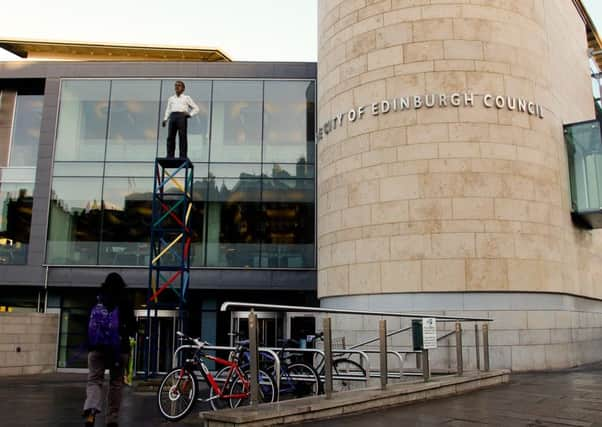Work together in face of austerity


Recent announcements in Glasgow, Edinburgh and Highland that local government will have to make significant job cuts comes as no surprise.
Local government have already taken the brunt of austerity, with 40,000 Scottish council job losses since the crash. Very few councillors will tell you this is why they came into politics: to oversee the decimation of local democracy. But with other big cuts coming from the UK government and the Scottish government’s priorities, local government can expect the worst.
Advertisement
Hide AdAdvertisement
Hide AdThere may be some posturing as finance directors have the difficult task of telling staff and departments that money is very tight, and council leaders prepare their people for what to expect in the coming months. But, as yet, no decisions have been taken, and it is elected councillors who have the final say. But we can be under no doubt, serious job and public service cuts are coming to local government.
It all starts with UK government austerity, which is ideologically driven. It’s based on the belief that public services should be no more than a basic safety net. The argument goes that councils should just collect the bins, fix the roads and provide a statutory legal minimum in protection for children and vulnerable adults.
Most of us believe, as the opinion polls show, that public services are a force for good. That young people need to have something to do; that it is for the good of us all to keep people in work; that older people need to be kept active. We are in no doubt that this is exactly when we need local services. They can be used to create demand in the economy and reduce serious social problems. It is local public services, held democratically accountable, which are closest to the people and best placed to deliver imaginative solutions.
Gordon Brown once said that more than this, public service is an ethos “which runs deep in our history, determines the character of our country, and defines our uniqueness to the world”. I agree. It is an ethos that links the public services, public delivery and public decision making. And it’s central to this ethos that public services insulate, particularly our more vulnerable communities, from market forces.
We should not underestimate the social fallout that a new round of austerity will bring. What is now on the table will cause all manner of social ills. It will again fall to trade unions and other like-minded bodies to lead the movement against austerity, to remind people that there is another way. We must lead the campaign, debate and challenge the cosy fiscal consensus across Europe. We must talk up public services; explain the value they bring to the world, and remind us all of the ethos they are founded on.
However, in Scotland we also have devolution and part of the reason for devolution is to take another path if it is in the interest of Scotland. To protect Scots from a political dogma they did not vote for – to use public services to protect Scots from the worst of austerity.
The Scottish Government cannot just say austerity is wrong and campaign with us against it. We must also look at how we can mitigate against the draconian cuts that are coming.
And crucially, it is too easy for UK and Scottish Governments to use councils to administer austerity. The Scottish Government, at least, must work with local government to mitigate the cuts, to reduce their impact and make them more humane.
Advertisement
Hide AdAdvertisement
Hide AdBoth Scottish Government and councils need to be imaginative about how they can improve some lives in austere times. In the not-too-distant past, Strathclyde Regional Council did just that to tackle Thatcherism.
Devolution gives us new levers to act in a similar way in this decade.
The Scottish government has huge political capital. People will give them a chance. It must start by ending the council tax freeze to give local government full flexibility to decide locally what services they can save and how they can invest to improve local economies.
They must also work to intervene early and continue to press ahead with preventive spending. And most importantly, be imaginative and less cautious in how we can mitigate against the worst of what is to come.
Yes, our task is to end austerity and the ideology from which it comes. But in the meantime, we all need to work constructively to mitigate its worst effects.
• Dave Watson is Scottish organiser (bargaining and campaigns) with Unison Scotland
SEE ALSO